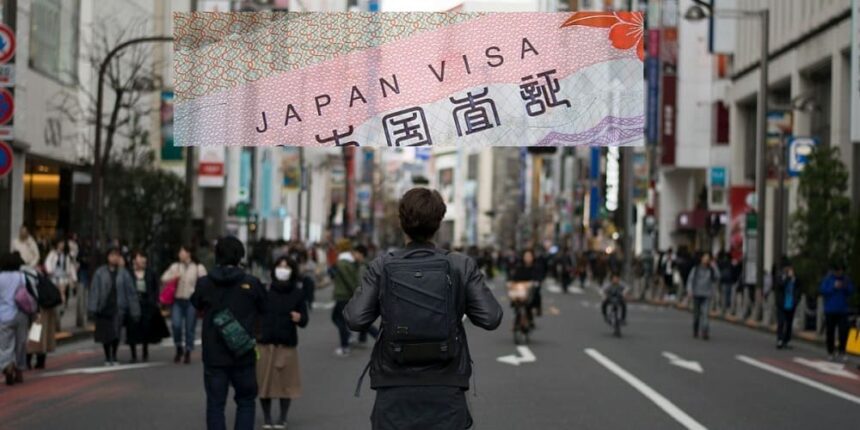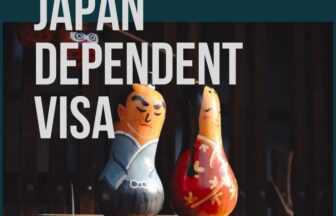As established by the Japanese government, all foreign nationals who wish to enter Japan to obtain employment are required a valid visa. Because working without it is subject to arrest and deportation. Therefore, how can you get a visa to work in Japan?
There are more than 20 visa statuses or residence statuses in Japan, and each differs in the authorized activities. That means a foreign worker cannot take jobs beyond what is authorized by his/her visa. It is, therefore, significant to determine what working visa category to apply for and its application process. This article will provide you helpful information.
Meanwhile, we will consider first the most important document to have, the COE or Certificate of Eligibility.
What is COE for?
Under the condition of the Immigration Control and Refugee Recognition Act, a foreigner who wishes to enter Japan other than “Temporary Visitor,” shall be examined by the Minister of Justice beforehand whether he/she meets the landing conditions related to the status of residence he/she is applying. A Certificate of Eligibility is issued once a foreigner fulfills the landing criteria and acknowledges that the intended activities are relevant to the status of residence. Presenting this certificate helps the issuance for an actual visa and landing permission easier and quicker. However, possession of COE does not guarantee that you automatically get the visa.
Your visa sponsor will apply for COE to the nearest Immigration office in Japan on your behalf. It could be your relative, employer, or school, etc.
Reference:
Immigration Bureau’s Website
Generally, those applying for Japan visa outside Japan need to obtain a COE. However, in the following situations, an application for a change of status of residence is required. If a foreigner:
- wants to engage in another activity that is beyond his/her current residency status
- wishes to terminate the current authorized activity and to engage in a new activity
- has denied Japanese citizenship and desire to continue residing in Japan
- wishes to acquire permanent residence status.
Now, let’s learn the application process for each type of Japan visa.
Engineer・Humanities・International Service Visa
Applying for this type of visa requires you to have a hosting organization or company in Japan who is willing to hire you and to sponsor your visa application. If you are applying this outside Japan, you need to have a COE or Certificate of Eligibility. But if you are already in Japan you need to apply for a change of status of residence. Here’s the example of occupations under this type of status of residence
| Engineer Software Engineer, System Engineer, Computer Programmer, Game Programmer, Development Engineer, Automobile Engineer, Project Manager in the field of IT, software, computer, technology, science, architecture, biotechnology, construction, automobile and so on. Humanities Accounting, Economic Analyst, Financial Analyst, HR (Human Resources), Legal business, Trading business International Service Teacher and instructor of a foreign language, Translator, Interpreter, PR (Public Relations), Fashion or interior design, Product development, Overseas transactions, Copywriting |
You are required to prepare the necessary documents for the application of this type of visa.
Confirmation about your experience and qualifications:
- Resume, C/V
- Documents which certify your educational background such as University Diploma, Certificate of Graduate
- Certificate of Employment issued by your previous employer
- JLPT Certificate
- Evidence for the applicant’s job in Japan and the terms and conditions:
- Documents to show your occupation, type of work/job and monthly salary for the job in Japan like the Employment Agreement issued and signed by the employer)
- Data from the host company/organization:
- Company Brochure
- Certificate of Company Registration (Touki Jiko Shomeisho).
- Financial Statement as of the last fiscal year-end.
*For a newly established company that cannot provide the financial statement for the last fiscal year, must provide a business plan for 1-year, notification of the establishment, - Payment slip for Withholding Tax (for the past 3 months before the application) or Application for
- Payment of Withholding Income Tax on a Semiannual
- Records for Salary Payment and Withholding Tax for the last year (Hotei-chosho-gokei-hyo).
References:
Immigration Bureau Website
I-socia Advisors
Specified Skills Visa
The recently implemented type of working visa, the specified skills visa has two classifications, SSV1 and SSV2. The second classification, which is the SSV2, enables a foreign national to bring his/her family and may be able to apply for indefinite residency status in the future. However, it will require a higher level of skills. Obtaining either of the two classifications, SSVI or SSV2 will be required to take specific skills and language examinations or other evaluation methods. To have an overview of how to obtain a visa, check the outline below.
Outline of the application process.
|
Please read “Japan’s New Specified Skills Visa in April 2019” and the “Specified Skills No. 1 Evaluation Test” for more details about this type of visa.
References:
Ministry of Foreign Affairs of Japan
Technical Intern Training Program
The Technical Intern Training Program (技能実習制度 Ginou Jisshuu Seido) is another way of accepting foreign workers in Japan in the form of an internship program. The main objective of this program is to provide training by transferring skill, knowledge, and technology experience for the qualified trainees and what they acquired in Japan will then contribute to the economic development of their home country.
There are two ways of accepting technical intern trainees, through individual enterprise and supervising organization.
Individual Enterprise
A setup where implementing organizations in Japan (business enterprise and other businesses) accept employees from overseas local subsidiaries, joint-venture companies, or trading partners and conduct technical intern training.
Supervising Organization
Non-profit supervising organizations (chambers of commerce, etc.) accept Technical Intern Trainees and the training is conducted at each implementing organization.
The flow of the Technical Intern Training Program
|
Technical Intern Training (i) (1st Year) |
|
|
Lecture (2 months at implementing organization or supervising organization) Japanese Language Training Guides to Life in Japan Immigration Control Act and Labor Law Knowledge regarding the Work Type |
Practical training Implementing organization conducts training * Supervising organization type: visiting guidance, inspection by supervising organizations |
|
Technical Intern Training (ii) (2nd and 3rd year) |
|
|
Practical Training
|
|
|
Technical Intern Training (iii)(4th and 5th year) |
|
|
Practical training
|
|
Reference:
Japan International Training Cooperation Organization
Working Holiday Visa
Only 22 countries can participate in the working holiday program. Participants can stay 12 months in Japan and may extend another 6 months if permitted. The government allows the working visa holder to work in the country to sustain his/her financial needs while traveling in the country. To obtain this type of visa, you should do the following steps.
|
1. You must be a qualified participant for the working holiday visa. |
|
|
2. Gather the requirements for the visa application. |
|
|
3. After you have gathered all the requirements needed for the application, then submit it to the Japan Embassy or Consulate in your home country. |
|
4. Prepare for a scheduled interview at the Embassy. |
|
5. Wait for the result of your application. |
Reference:
Ministry of Foreign Affairs of Japan
Student Visa
Student Visa is a non-working visa, so typically your purpose to enter Japan is not generating income but rather to study in the Japanese language school or university.
There are two ways to acquire a student visa:
- File an application for a visa directly to an overseas Japanese embassy or consulate. (without COE)
- The institution in which the international student is scheduled to enroll will apply for a Certificate of Eligibility to the nearest immigration office on the international student’s behalf. After the issuance of COE, the international student will take it to the consulate and apply for an actual student visa.
|
Steps to get a COE: Confirm acceptance from the school in Japan where your enrollment is scheduled
|
An international student who granted a status of residence of College Student or Pre-college Student who wish to work part-time should apply for “Permission to Engage in Activity Other than that Permitted by the Status of Residence Previously Granted.”
Note that if you have “Permission to Engage in Activity Other than that Permitted by the Status of Residence Previously Granted,” there are restrictions that you must consider such as:
- Permitted working hours (only 28 hours per week)
- Working to adult entertainment businesses are prohibited
But for those students enrolled at a university or high-school (4th and 5th-year non-degree graduate programs only) working as a teacher’s assistant or research assistant at the university or high-school, a Permission to Engage in Activity Other than Permitted by the Status of Residence Previous Granted is not required.
Reference:
Study in JAPAN Comprehensive Guide
Permanent Residency
Under the Immigration Control and Refugee Recognition Act Article 22 and 22-2, the foreign national can be able to acquire permanent residence status or those who want to change the current status to permanent residence. The applicant can apply once the current resident status expires.
|
Who can apply? |
|
|
How to apply? |
The following are the necessary documents:
4. Pay a receiving permission fee amounted to 8,000 JPY. 5. You will get the result of your application after six months. |
Aside from permanent residency status allows unlimited duration for your stay in Japan, there is also no restriction on the activities you want to engage.
Reference:
Immigration Bureau of Japan
Long-Term Resident Visa
“Long-term resident visa” is granted only on special circumstances, such as to those with Refugees accepted for third-country resettlement, Japanese descent, Japanese relative, child of Japanese, or those who previously married to Japanese national.
Increase your chances of getting the visa approval by fulfilling the requirements, including the supporting documents.
The list of supporting documents you need to secure are:
- Copy of family registration
- Marriage certificate
- Birth certificate
- Documents certifying the status of the foreign national
- Documents confirming the financial capacity of the foreign national that he/she can support all the expenses during his stay in the country. In case, another person will support, submit the documents showing the financial capacity or income of that person.
- A letter of guarantee by the person living in Japan
There will be no limitations on the activities for the long-term resident holder. Therefore, you can be able to work at any jobs you want in Japan.
Reference:
Spouse Visa
If the foreign spouse (husband or wife) who legally married to a Japanese national, applying for a spouse visa in the Japanese Embassy or consulate, should get a COE first. In possession of a COE increases the chances of getting your visa approved. However, if you want to apply for a spouse visa without having a COE, it is also possible.
For the application of COE, you need to provide the following supporting documents:
- Documents confirming that the applicant is a spouse of the Japanese national such as resident card, spouse’s family register or koseki tohon, resident registration certificate or jumin-hyo
- Documents certifying the profession and income of the applicant or his/her spouse such as tax certificates: nouzei-shoumeisho and kazei-shoumeisho
- A letter of guarantee by the person living in Japan.
On the other hand, if a foreigner currently has a residence status in Japan and married a Japanese national, she/he can change her current residence status to a Spouse of Japanese National by applying for a change of status of residence at the immigration bureau after notifying the Japanese public office about the marriage. In this case, a COE is not required.
Reference:
Immigration Bureau of Japan
Refugee visa
Under the Refugee Convention, a person must meet the four (4) criteria to be qualified as a refugee:
- To be outside the country of one’s nationality
- To have a well-founded fear of being persecuted
- The fear of being persecuted is based on race, religion, nationality, membership of a particular social group or political opinion
- Being unable or unwilling to avail himself of the protection of that country owing to such fear.
The government in Japan will decide whether they grant or not the refugee status for each applicant. Learn how to apply for a refugee visa.
- The applicant must fill in the 12 pages application form that can be downloadable online.
Attach the following necessary documents:
- 1 Copy of an applicant’s statement to affirm that he/she is a refugee
- Photo (4cm×3cm, must be taken within 3 months before the application procedure) 2
copies - Passport or Certificate of Status of Residence
- Residence card
and more.
*To check the complete list of requirement, you may visit the Immigration Bureau website, here
2. You will wait until 6 months to know the outcome of your refugee status application.
3. If the application is rejected, the applicant can file an appeal.
Reference:
Immigration Bureau of Japan
Dependent Visa
The following statuses are the only eligible to apply for a dependent visa in Japan.
- Professor
- Artist
- Religious Activities
- Journalist
- Investor/Business Manager
- Legal/Accounting Services
- Medical Services
- Researcher
- Instructor
- Engineer
- Specialist in Humanities/International Services
- Intra-company Transferee
- Entertainer
- Skilled Labor
- Cultural Activities
- Student (Graduate School, University, Junior College, Technical School )
If you possessed one of the residence statuses listed above, then you can apply for a dependent visa for your legally married spouse (husband/wife) and your legal children.
If by chance you get an employer in Japan will shoulder the visa application for you and your family, so you will arrive in Japan together with your family. On the other hand, if you want to bring your family yourself, you can only apply them a dependent visa after you arrived in Japan. Here’s what you need to know about the application for the dependent visa.
|
Take into consideration that the dependent visa does not permit your family member to work as a full-time employee in Japan. However, they may be able to engage in part-time jobs, provided that they obtain a “Permission to Engage in Activities Other than that Permitted Under the Status of Residence Previously Granted” from the Immigration Bureau of Japan. The work permit will allow them to work for only 28 hours per week.
Again, if you are outside Japan, you need to apply for a COE, which is an important document to be granted for a visa. However, if you have already possessed a resident status in Japan, you will need to apply for change status.
Some visas stated above will not allow you to work full-time in Japan, but may able to work part-time as long that you can have permission to work. So, if your purpose is to work in Japan, then decide the appropriate visa for you.
 日本語
日本語









My father is working in Japan and I also want to go there but my age is 23 so can I go in dependent visa
Thank you for the comment!
Yes You can do it.
Thank you so much for this very informative article!! Great read
Thank you for the comment! We will continue our job!
Hello sir i want job in Japan how to apply. Please help me
Sir I am interested in work visa I am Electronic engineer kindly contact me I need your consultancy.
Hello Sir
I have applied for Refuzee visa can I apply for this visa Tokutei gonuo Visa
Hi,
Please ask us through here: info@fairness-world.com
Thank you!
Hi,
Please inquire us through our email add: info@fairness-world.com
Thank you!
Hi,
Please inquire us through our email add: info@fairness-world.com
Thank you!
Hi,
Please contact us via our email add: info@fairness-world.com
Thank you!
Good day! I invited my 2 niece here in Tokyo as tourist visa and they we’re extended because of corona they are graduated in university. Is it possible to change their status to working visa of we find a company to sponsee them? Thank you, hoping for your quick reply.
Hi,
Yes that would be possible if the company in will sponsor them. Kindly check the article below to know what are the types of jobs that will sponsor a working visa in Japan.
https://workjapan.fairness-world.com/en/work-visa-japan-sponsorship/
Hello sir my name is Hussain Muhammad Ijaz i am living here in Japan from 2 January 2019 i have refugees visa .before i was lawyer in Pakistan but now i came here and working in japanese company but i want to change my refugees status. One time i apply for work visa but nagoya immigration reject my application. He say you are lawyer and you can’t working like in trading or other company and I also want to say if he can’t give me work visa then why he issue me work permit i want to make myself legal please give me some guidance. Thank you
Regarding your query, it would be better to contact the immigration office in Japan to get accurate change visa status information. We appreciate for contacting us.